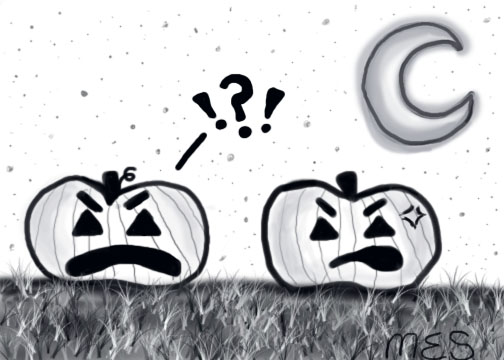Halloween: Holiday or a boo-ring time?
The bone-chilling breeze, the spooky decorations, flashing strobe lights and hoards of children dressed in very flammable outfits. It’s that time of year, folks, time to rush to the store, buy some overpriced candy, and hand it out to a bunch of kids that live on your street. It’s Halloween, baby!
Now, many people love Halloween. Whether it’s because they like dressing up, or carving pumpkins, or even telling ghost stories. Surprisingly, Halloween isn’t celebrated everywhere around the world, in fact, many Latin American countries don’t partake in the festivities, and they aren’t alone. Countries like England and Germany also don’t participate in this day. Some countries around the world that do celebrate Halloween would be Ireland and Canada. The main question is “Is Halloween truly a holiday?”
Holidays are days that either hold a religious significance or are accepted by the government as a significant day. Merriam-Webster states that the definition of a holiday is “a day on which one is exempt from work.” For example, Christmas would be considered a holiday because it is accepted by the government as a holiday, and therefore you are given the day off, it also holds a religious significance in many countries around the world. Halloween, sadly is not a day that people get off, and the government does not classify it as a holiday, so, therefore, Halloween is not a holiday. Think of Valentine’s Day or Saint Patricks Day, how does Halloween differ from any of those singular day holidays?
“What meaning does Halloween have? It’s just like Valentine’s day, you can celebrate Valentine’s day, or you can tell someone you love them every day. Halloween is about what? Dressing up? Children can dress up all the time, and many kids do. I just don’t understand the reason why Halloween is different than other single day holidays.” Mrs.Porter ninth-grade history teacher said.
Now for those out there that are heartbroken over this sad realization, here are some facts that might help you get over Halloween as a holiday.
For starters, Halloween is a billion-dollar industry. Basically, it’s a really good time to be part of the candy business. According to the National Retail Federation’s annual survey “Prosper Insights & Analytics,” Americans are projected to spend $9 million this year alone on Halloween-related items.
Other things that many people don’t think about are the safety concerns that come with Halloween. For one, Halloween is an event that is mainly centered around Trick or Treating. Trick or Treating is when people (usually children) go from door-to-door asking for candy. There are many obvious things that can go bad here. One, letting children take candy from strangers in any situation is dangerous. Also, depending on whether or not that child is allergic to something could also lead to another dangerous situation. 13 out of every 18 children in the United States has a food allergy. Milk, eggs, peanuts, soy, wheat and tree nuts are just some of the foods that children are allergic to, and these items are found in all types of items, especially candy.
“I want my kids to be able to dress up and have fun and trick or treat. But as a parent, I see more things that I didn’t see before. Like the weird guy walking down the street without any kids.” Porter said.
The safety issues don’t end with just the candy, in fact, according to the National Safety Council, “Children are more than twice as likely to be hit by a car and killed on Halloween than on any other day of the year.” Also, throw flammable costumes and carving pumpkins with sharp tools into the mix you are bound to end up with some injuries in the process. The USCPSC (US Consumer Product Safety Commission) stated: “Out of an estimated 4,500 Halloween related injuries reported during October and November last year, 41% were related to pumpkin carving.”
It’s not wrong to enjoy Halloween, but there are certain concerns that have to be addressed, and as a society as a whole we need to be aware of certain risks.



